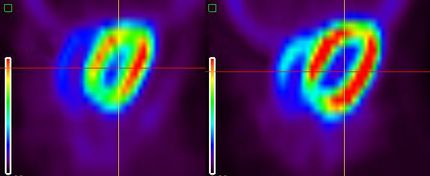Speedel Receives Major Development Milestones From Novartis
Equity participation and cash payment for Aliskiren SPP100
Advertisement
Basel and Bridgewater. The Speedel Group, a privately held biopharmaceutical company focused on cardiovascular and metabolic drug development, today announced that it has received development related milestone payments from Novartis Pharma in respect of Aliskiren (SPP 100). The payments include both a cash element and an equity participation by Novartis Pharma in Speedel. Further details are not disclosed. In March 2004, Novartis started the Aliskiren phase III program as a monotherapy for hypertension, and also commenced a phase IIb study of Aliskiren in combination therapy with Diovan for hypertension.
Aliskiren (SPP100) is a first-in-class oral renin inhibitor that has demonstrated exciting potential for the treatment of hypertension. Speedel developed SPP100 through phase I and II in 18 clinical studies comprising about 500 patients and healthy volunteers before Novartis licensed the compound in 2002. Speedel is the first company to establish clinical proof of concept in phase II and to have developed and patented a commercially viable manufacturing process for a renin inhibitor, an area of industry research for over 20 years.
In a phase II study of 200 patients conducted by Speedel, it was demonstrated that Aliskiren achieves dose-dependent blood pressure reduction. The study also showed that 150mg and 300mg Aliskiren once per day were comparable to Losartan 100mg which is double the starting dose of this Angiotensin II Receptor Blocker.
Speedel continues to be a world leader in renin inhibition through its proprietary lead optimisation programs (SPP600 and others) conducted at Speedel Experimenta, the company's late-stage research unit, and through its work on the Roche renin inhibition program in-licensed in 2002.
Renin is the key enzyme at the top of the Renin Angiotensin System (RAS), one of the key regulators of blood pressure. The RAS is a cascade, starting with renin, leading to angiotensin I and finally to angiotensin II. Angiotensin-converting enzyme (ACE) inhibitors and angiotensin II receptor antagonists (ARBs) have been developed to block this system "downstream" and have shown clinical efficacy in patients with hypertension, chronic renal failure, congestive heart failure and other cardiovascular diseases. By inhibiting renin, it is believed that additional benefits will be created for patients suffering from these diseases above and beyond current therapies.




























































